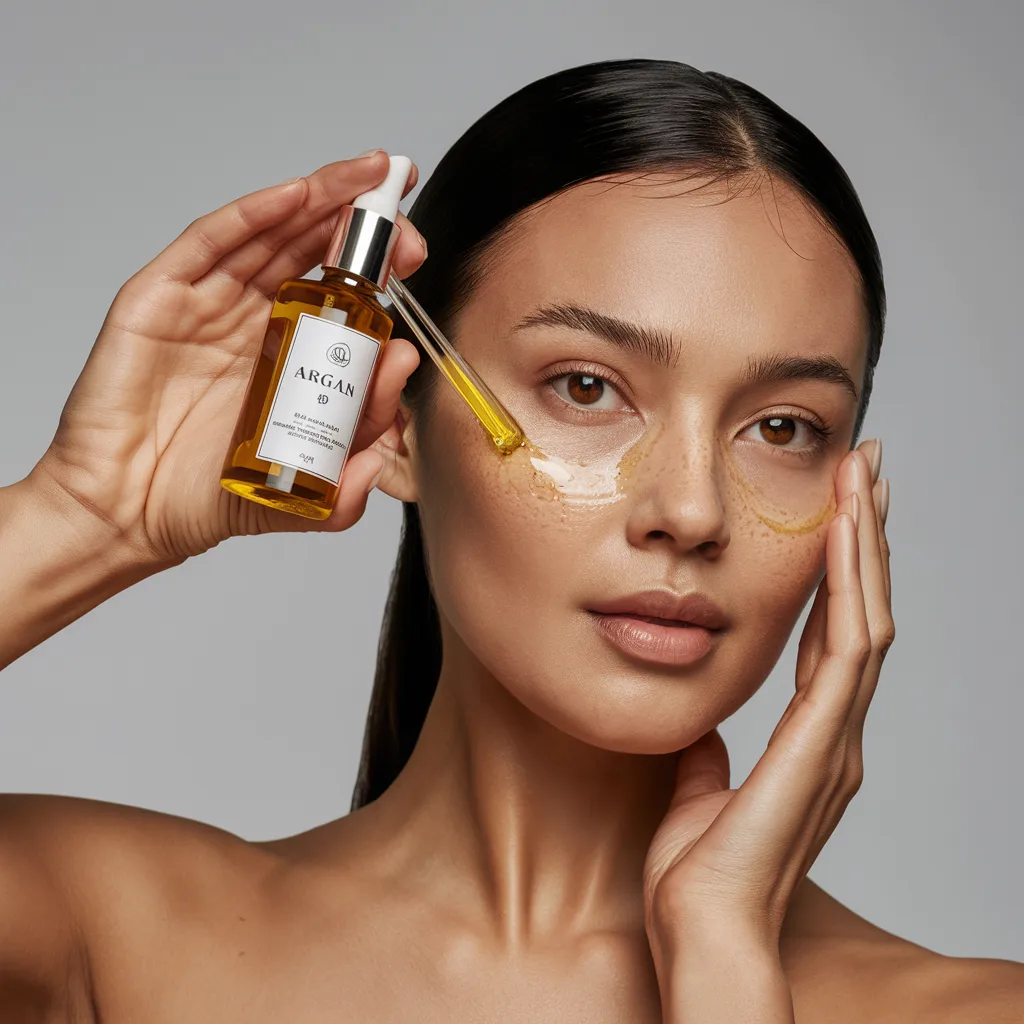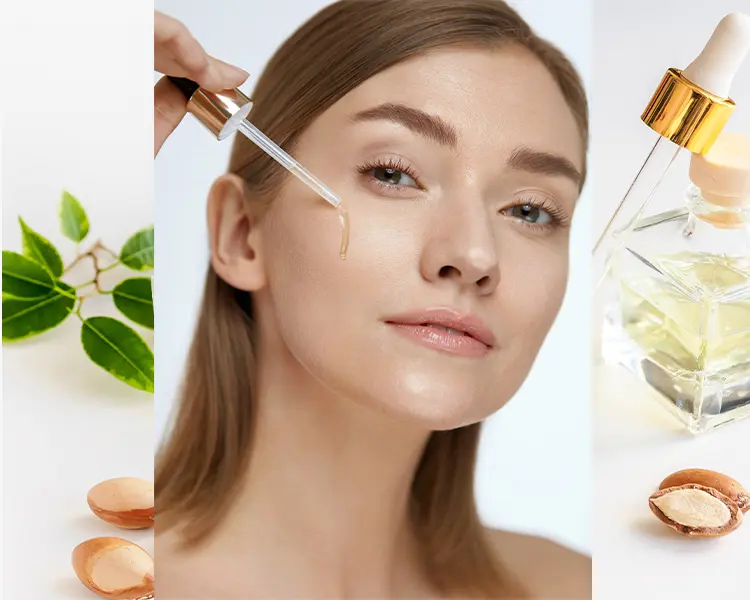Do you want to achieve a lighter, more radiant complexion? Have you heard about the wonders of Argan oil for skin lightening but wondering if it really works? Well, I’m here to clear up any confusion and reveal the truth about this popular beauty product.
In this article, we’ll explore whether or not argan oil can actually lighten your skin and the science behind its effectiveness. We’ll also dive into how to properly use argan oil for skincare and discuss potential side effects to watch out for. By the end of this read, you’ll have all the information you need to decide if argan oil is right for your skin lightening goals. Are you ready? Let’s get started!
So, argan oil lighten skin?
It is a common misconception that the luxurious Argan oil has skin lightening properties. In fact, Argan oil is known for its moisturizing and nourishing effects on the skin, making it appear brighter and more radiant. Its high content of Vitamin E helps to improve overall skin health and can even help with dark spots or hyperpigmentation over time. However, it should not be used as a substitute for traditional skin lightening products or treatments. As always, it’s important to do thorough research and consult with a dermatologist before trying any new skincare product.
Understanding the Skin Lightening Properties of Argan Oil
Argan oil, derived from the nuts of the argan tree native to Morocco, is celebrated not only for its rich, nutty flavor but also for its remarkable skin benefits. This golden elixir is packed with essential fatty acids and vitamin E, both known for their ability to nourish and hydrate the skin. One of the most appealing properties of argan oil is its potential in skin lightening. While it may not be a magical solution that instantly transforms your complexion, when used consistently over time, it can help reduce hyperpigmentation and even out skin tone. The antioxidants present in this oil work tirelessly to combat free radicals that contribute to dark spots and uneven pigmentation.
When applying argan oil as part of a skincare regimen, consider using it daily after cleansing your face or body. Its lightweight texture allows for deep penetration without clogging pores. You might notice how gently it glides on your skin while leaving behind a soft sheen rather than an oily residue. To enhance its lightening effect further:
- Combine it with lemon juice or honey.
- Use it alongside other natural products like aloe vera.
With patience and proper care, argan oil can become a valuable ally in achieving a brighter complexion!
Exploring the Science Behind Argan Oil’s Effectiveness for Skin Lightening
Argan oil, derived from the nuts of the argan tree found in Morocco, has gained popularity for its skin benefits, including its potential for lightening dark spots. This rich oil is packed with valuable nutrients like vitamin E and essential fatty acids that nourish and hydrate the skin. When applied topically, argan oil penetrates deeply, helping to rejuvenate tired cells while promoting a more even complexion. The antioxidants present in this golden elixir combat free radicals that can lead to hyperpigmentation—dark patches caused by sun exposure or aging. By reducing inflammation and providing moisture, it creates an ideal environment for healthy skin renewal.
One fascinating aspect of argan oil’s effectiveness lies in its ability to balance sebum production. For those with oily or combination skin types, excessive oils can contribute to dark spots and uneven tone. Argan oil helps regulate this natural process without stripping away essential moisture. Additionally, regular use may reduce signs of aging by boosting elasticity and firmness—a double win for anyone looking to brighten their skin! Including argan oil in your skincare routine could mean embracing your natural glow while fading imperfections over time.
In summary:
- Nourishes & hydrates
- Contains antioxidants
- Balances sebum production
This makes it a versatile choice for achieving radiant skin!
Read also: designers touch

How to Use Argan Oil for Optimal Skin Lightening Results
Argan oil, often referred to as “liquid gold,” is a treasure trove of nutrients that can work wonders for your skin. Packed with antioxidants and fatty acids, it’s known to nourish and hydrate while promoting a radiant complexion. To use argan oil effectively for skin lightening, start by cleansing your face thoroughly to remove any dirt or makeup. After patting your skin dry, take a few drops of the oil into your palms and gently warm it between them. This simple step helps activate its properties! Next, apply the oil in circular motions across your face and neck, focusing on areas where dark spots or uneven tones are prominent.
For best results, consider incorporating argan oil into your nightly routine. Allowing it to absorb overnight maximizes its benefits while you sleep. You might also blend argan oil with other natural ingredients like honey or lemon juice; both have their own lightening effects. Just remember: less is more. A little bit goes a long way! Maintain consistency by applying this nourishing treatment every evening over several weeks to gradually reveal brighter skin without harsh chemicals or irritation.
With regular use and patience, you’ll likely notice an improvement in tone and texture that brings out the natural beauty within you!
Potential Side Effects and Precautions when Using Argan Oil for Skin Lightening
When considering argan oil for skin lightening, it’s essential to be aware of potential side effects. Though this golden oil is celebrated for its nourishing properties, some individuals might experience sensitivity or irritation. Common reactions can include redness, dryness, or even peeling in certain cases. It’s wise to perform a patch test before diving into regular use; simply apply a small amount on your wrist and wait 24 hours to see how your skin reacts. If you notice any discomfort during that time, it may be best to steer clear.
Additionally, while argan oil is generally safe for most people, precautions should be taken if you have particular skin conditions like eczema or rosacea. These conditions can make the skin more reactive to new products. Always consult with a dermatologist before starting any new skincare regime involving oils or treatments aimed at lightening the skin tone. Remember that everyone’s skin is unique; what works wonders for one person might not suit another as well.
By being informed and cautious, you can enjoy the benefits of argan oil without running into unnecessary trouble!
You may also like: essential oils for eye bags
Assessing Whether Argan Oil is Right for Your Skin-Lightening Goals
When considering argan oil for skin-lightening purposes, it’s essential to understand its unique properties. This precious oil, derived from the nuts of the argan tree in Morocco, is rich in vitamin E and essential fatty acids. These components work harmoniously to nourish the skin while providing hydration. By absorbing quickly into the skin without leaving a greasy residue, argan oil can promote a soft, radiant complexion. Many people find that incorporating this oil into their skincare routine not only improves moisture levels but also helps even out skin tone over time.
However, while it has many benefits, using argan oil alone may not produce dramatic lightening effects like some chemical treatments do. For those aiming to lighten dark spots or hyperpigmentation naturally, combining argan oil with other ingredients could be more effective. Consider pairing it with gentle exfoliants or natural brighteners such as lemon juice or honey for enhanced results.
Ultimately, patch testing before fully integrating any new product is wise; everyone’s skin reacts differently! So whether you choose to use pure argan oil or mix it with other natural remedies, understanding your own skin’s needs will help you achieve your desired glow safely and effectively.
